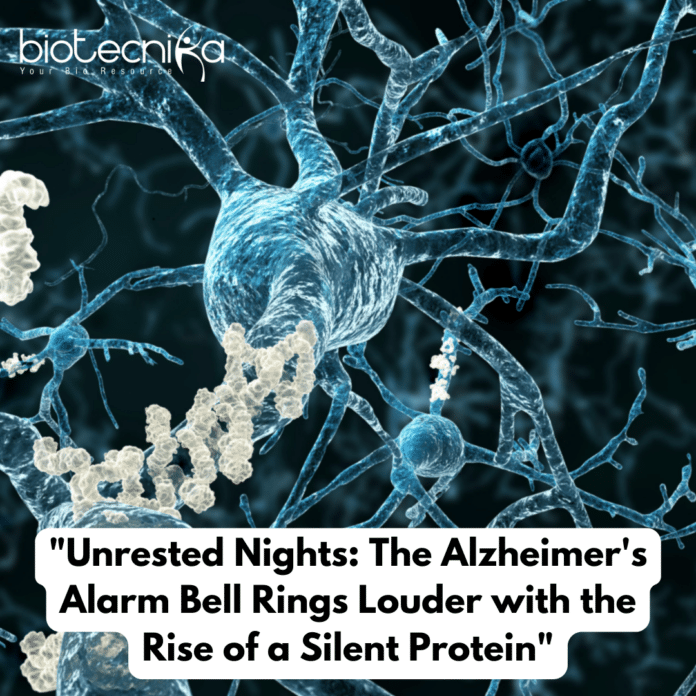Alzheimer’s Risk Factor – Alarm Bell Rings Louder with the Rise of a Silent Protein
Have you ever experienced a restless night’s sleep and then felt like your brain was in a fog the following day? Well, it turns out that this feeling might be more than just a temporary annoyance.
Recent research has unveiled that a lack of sleep can actually harm your brain and increase your risk of developing neurological diseases such as Alzheimer’s. Researchers have made a significant breakthrough by pinpointing a protein that is affected when mice are deprived of sleep. They conducted experiments using mice to confirm and expand upon earlier findings regarding the detrimental effects of sleep deprivation on the brain. Their discovery reveals that insufficient sleep leads to a reduction in the levels of a crucial protein known as pleitrophin (PTN).
This decline in PTN levels triggers the death of brain cells in an essential region called the hippocampus, which plays a vital role in learning and memory. The research team from Binzhou Medical University in China shared their findings, stating, “We have identified PTN as a protein linked to cognitive impairment caused by sleep loss. Our research suggests that PTN-mediated signaling represents
a novel mechanism through which sleep safeguards cognitive function.” Scientists have also started examining alterations in protein and RNA levels to comprehend the underlying reasons for the impact of sleep deprivation on the hippocampus, as observed in studies involving humans. To evaluate how insomnia affects the cognitive abilities of mice, researchers conducted tests on their spatial skills in a maze and their short-term memory when recognizing new objects. They were meticulous in timing these tests to minimize any potential influence on hippocampal proteins.The analysis of proteins revealed that 164 proteins displayed different expressions in the brains of mice with induced insomnia compared to the control group. Many of these proteins are associated with pathways in the hippocampus that have been linked to neurodegenerative diseases like Alzheimer’s, Parkinson’s, and Huntington’s. Upon comparing the cognitive test results of the control mice, researchers uncovered a correlation between poor performance and a decrease in PTN levels. Moreover, when the insomniac mice were able to restore their normal sleep patterns, the levels of PTN in their hippocampus increased Alzheimer’s neurological diseases.
A comprehensive examination of genetic variations revealed that reduced PTN expression in the hippocampus impacts a pathway leading to cell death. Some individuals may be more susceptible to cognitive problems when they don’t obtain adequate sleep due to genetic differences. This research underscores PTN as a potential indicator for cognitive difficulties associated with sleep deprivation and contributes to the growing body of evidence supporting the protective role of sleep in preserving brain health. It’s worth noting that previous studies have shown that genetically modified mice lacking PTN exhibited abnormal cognitive behavior, and human studies have linked PTN to Alzheimer’s disease.
Therefore, it might be time to reconsider those late-night Netflix proteins marathons for the sake of your brain. If you’re grappling with sleep issues, consulting with your healthcare provider is advisable. This study provides fresh insights into the connection between sleep and cognitive well-being, offering a potential marker for cognitive impairment triggered by insomnia. Furthermore, it suggests a novel approach to identifying neurological markers by integrating proteomics and systems genetics, which could pave the way for future advancements in understanding and addressing sleep-related cognitive issues.
Alzheimer’s Risk Factor – Alarm Bell Rings Louder with the Rise of a Silent Protein






























